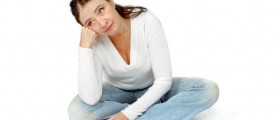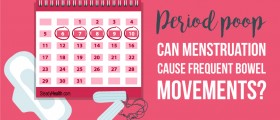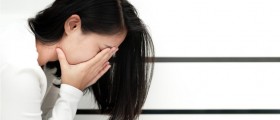
Menopause is a transition period in a woman’s life. This period is characterized by permanent cessations of the primary function of the woman’s ovaries, her inability to release sufficient amounts of hormones necessary for reproduction, and cessation of the menstruation. Menopause usually occurs in woman’s midlife, typically between their late 40s and early 50s. Sometimes, women may go into menopause at much younger age, typically if they have some kind of functional disorder of the reproductive system. The transition usually occurs over a period of couple of years, as a natural consequence of aging. However, it is associated with severe hormonal changes that affect women on many different levels.
Indications and signs of menopause
Menopause is characterized by rapidly fluctuating and dropping levels of hormones. Various symptoms of menopause are tightly associated with levels of particular natural hormones in the body. For example, women may feel vaginal dryness, complain about hot flashes and mood changes, they may feel depressed, anxious, irritable, and may even have memory problems or problems concentrating. Medical conditions associated with menopause include joint pain, muscle pain, depression, problems sleeping and hot flashes.
Anxiety and menopause
As any other transitional period, menopause can produce feelings of anxiety and dramatically diminish the quality of woman’s life. It doesn’t necessarily affect a menopausal women but it remains important to understand all aspects of anxiety and help women manage and treat this symptom if it happens to them. Anxiety is both psychological and physiological state that has strong Somatic, emotional, cognitive, and behavioral components. It is usually described as a feeling of worry and intense fear, as well as unpleasant anticipation of a future unpleasant event. Women may constantly feel that something bad is about to happen, and their uneasiness manifests in the form of panic attacks, nervousness, twitchiness and depression.
Tips to reduce anxiety in menopause
Menopausal women have a lot of different ways to approach anxiety treatment. The best way is to improve their own lifestyle and try natural therapies. Medical options are also available, and the best of them include talk with a counselor or other trained psychological professional.
Women should try to restore some balance in their lives by finding the best way to diminish work stress and enjoy quality time with their family and friends. It is also important to be active and engage in relaxing physical activities such as long walks or yoga. Women should also opt for healthy diet and avoid smoking or drinking too much coffee or alcohol. Sometimes, anxious feelings are resulting from nutrient deficiency and some of the chemicals found in coffee, for example, are known to trigger a panic attack. Instead of coffee, women should try to drink soothing and beneficial chamomile or ginseng tea.

















Your thoughts on this
Loading...